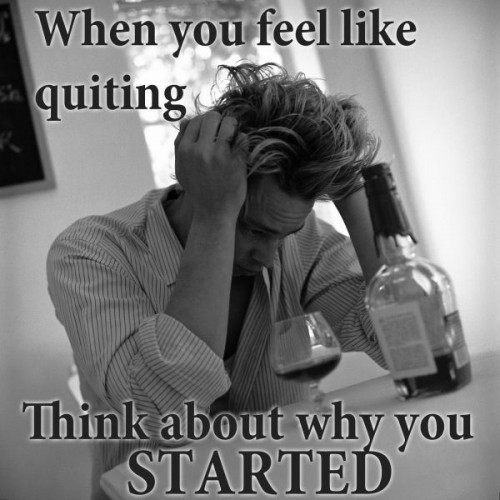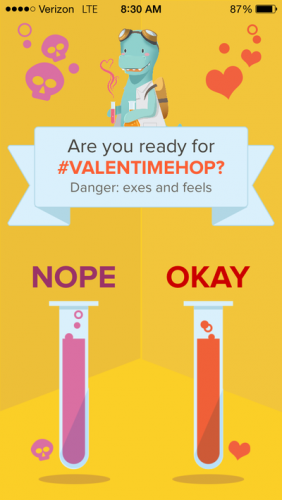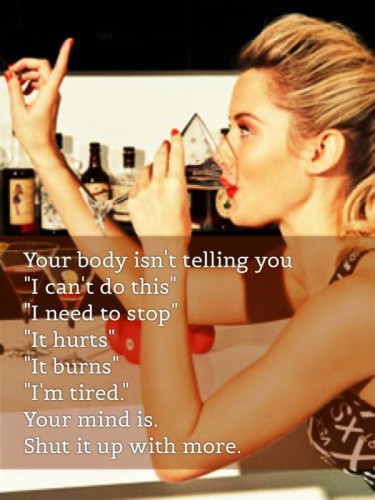
It’s a conference week here at mbird, so expect a lighter posting schedule for the next week or so while the focus shifts to New York City! Say a prayer for our attendees if you have a moment. In the meantime, here’s an extra-long weekender to hold you over:
1. David Brooks returned to his flirtatious ways last Saturday in the New York Times with his “Moral Bucket List,” a preview of coming attractions for his new book, The Road to Character:
Commencement speakers are always telling young people to follow their passions. Be true to yourself. This is a vision of life that begins with self and ends with self. But people on the road to inner light do not find their vocations by asking, what do I want from life? They ask, what is life asking of me? How can I match my intrinsic talent with one of the world’s deep needs?
Their lives often follow a pattern of defeat, recognition, redemption. They have moments of pain and suffering. But they turn those moments into occasions of radical self-understanding — by keeping a journal or making art. As Paul Tillich put it, suffering introduces you to yourself and reminds you that you are not the person you thought you were.
The people on this road see the moments of suffering as pieces of a larger narrative. They are not really living for happiness, as it is conventionally defined. They see life as a moral drama and feel fulfilled only when they are enmeshed in a struggle on behalf of some ideal.
This is a philosophy for stumblers. The stumbler scuffs through life, a little off balance. But the stumbler faces her imperfect nature with unvarnished honesty, with the opposite of squeamishness. Recognizing her limitations, the stumbler at least has a serious foe to overcome and transcend. The stumbler has an outstretched arm, ready to receive and offer assistance.
Her friends are there for deep conversation, comfort and advice.he stumbler doesn’t build her life by being better than others, but by being better than she used to be. Unexpectedly, there are transcendent moments of deep tranquillity. For most of their lives their inner and outer ambitions are strong and in balance. But eventually, at moments of rare joy, career ambitions pause, the ego rests, the stumbler looks out at a picnic or dinner or a valley and is overwhelmed by a feeling of limitless gratitude, and an acceptance of the fact that life has treated her much better than she deserves.
What a tease! Quotes from Tillich about suffering? Check. An honest assessment of happiness as a cultural value? Check. Death and resurrection? Check. Dismissive feelings toward graduation speakers? Check. And yet, as he is prone to do, he still manages to add one or two drops of self improvement to an otherwise delicious cocktail of law and gospel social commentary. You’re a cruel man, Brooks, but you’ll probably still get a review of your new book out of us anyway. But should you, reader, need a third party endorsement that sanctification (what Brooks calls a “radiant inner light”) comes from grave digging instead of ladder climbing, look no further.
2. We’re a little late to this party, but the TED Talk to end all TED Talks has arrived. If you haven’t had a chance to hear Monica Lewinsky share what it was like to be the first public figure shamed on the internet, make sure you have tissues handy. I was caught off guard, for sure, and surprisingly driven to sincere repentance over the jokes I told and opinions I held in the 90’s. No surprise that mbird favorite Brene Brown makes a cameo. Let he/she who is without sin cast the first stone. Bypassing the obligatory “try harder” section of the TED Talk, she hits the nail on the head when she self-identifies as “patient-zero” of internet shame.
3. You’ve heard of the humblebrag, and now via Slate we have the haterbrag, the art of cherry-picking insults and wearing them as badges of honor. It’s the perfect companion to DZ’s piece from last week on social media tautologies and Genghis Khan.
The art of the haterbrag lies in the curation: Dozens of pedestrian insults can pass through a person’s feed before a truly bizarre or ironic comment appears. When Butler University literary journal Booth prodded Franzen to elaborate on his feelings about Weiner in a February interview, he produced several perfectly mean quotes about her; she selected the most peevish of all of them—“She has no case. So she tweets”—and elevated it to her Twitter bio. Some haterbrags work because the comments are so negative that they end up circling all away around to complimentary, or even unexpectedly profound…
The hatebrag is a social media machination, but on some level, it’s also a totally authentic response to getting insulted in public. We want to discredit whoever did us wrong, and have our assessment confirmed by all of our friends.
 As a “snide note,” this is the go-to way to respond to the accusation of being Antinomian, because there is no such thing as an Antinomian. There’s also something there about accusation having no power, though it’s rooted more in thick skin than truth.
As a “snide note,” this is the go-to way to respond to the accusation of being Antinomian, because there is no such thing as an Antinomian. There’s also something there about accusation having no power, though it’s rooted more in thick skin than truth.
4. The New Republic has confirmed: The Pope believes in the Devil. And Grizzly Adams has a beard too. This last paragraph is interesting:
But perhaps the most promising aspect of Pope Francis’s wholehearted belief in the Prince of Lies is the way it unites all of humankind in a single struggle. “The Devil,” Bergoglio writes in On Heaven and Earth, “is one thing. It is quite another matter to demonize things or people. Man is tempted, but there is no need to demonize him.” Lucifer’s works may warp and disfigure human intentions and human communities, but because the Devil is ultimately his own person, those evil acts are always separate from us, the whole of humankind. In that sense we’re all caught in the same drama, fending off a creature with malicious intentions and tireless energy. But we are as responsible for defending our fellow people and entire communities from his influence as we are for resisting it ourselves. It is only a special kind of cosmic solidarity that can say we’re all in this together, all of us, forever—and in his crusade against Satan, Pope Francis has hit upon it.
That “common enemy solidarity” is a helpful concept, and it’s not all that different from the “solidarity of saved sinners” either. To expand it out a bit, the more serious we see our enemies (the world, the devil, the unperfected self), the more sympathy and solidarity we can have for each other’s struggles and failures. That’ll preach!
5. In television news, we bid a fond farewell to Justified this week. Were it not a conference week, there might be more to say on the subject, so for now, here’s a taste to hold you over. Also, the move to yahoo screen has definitely not killed Community’s mojo. Six episodes in and I’m laughing as hard, if not harder, than I was for the other five seasons. Of note- episode six, where Tim Kreider’s email apocalypse plays itself out on Greendale’s campus. #SixSeasonAndAMovie, amirite? Also, for those Gen-X and Millennial readers whose parents took less interest into their TV time, claymation classic Celebrity Death Match is returning to MTV2.
6. Parents! Why is Your Millennial Crying? And if you add drunk people to fitness quotes, things get hilarious (and theologically nuanced!)
7. A new trailer for the Brian Wilson biopic, Love & Mercy. The money dialogue:
“I have to tell myself five times a day ‘I love you.'”
“Does it work?”
“I don’t know. Sometimes I wish I had someone else to say it to.”
You bring the popcorn, I’ll bring the Kleenex.
8. Over at Vox, some really deep stuff going on as they inspect nostalgia through the lens of Timehop, Throw-Back Thursday, and Facebook’s “On this Day” function.
Though researchers have looked closely for negative consequences of nostalgic reminiscing, they’ve found few. Cross-cultural studies of people from 18 countries on five continents found they all engage in nostalgia regularly and consider it to be a positive experience. Studies show it can even help people cope with fear of their own mortality. The main exception is people who habitually worry: for them, nostalgia seems to exacerbate the problem and increase anxiety levels. But by and large, the bittersweet emotion of nostalgia seems to have surprisingly positive effects. This may be related to what psychologists call the Pollyanna principle: our tendency, when recalling any given experience, to remember the good much more powerfully than the bad.
In a Guardian article about nostalgia last year, Wildschut described one of the most striking examples of the emotion’s therapeutic potential: the many concentration camp prisoners, during the Holocaust, who habitually discussed memories of bountiful family meals and recipes from years earlier. When Wildschut spoke with a survivor about this behavior, the man explained to him exactly why he’d spent so much time talking about food when he was literally starving. He said, “‘We used our memories to temporarily alter our perception of the state we were in,'” Wildschut told the Guardian. “‘It was not a solution, but the temporary change in perception allowed you to persevere just a bit longer.'”
 Dubbing nostalgia a “defense mechanism” is an interesting thought- if history has no golden age, then can we have our own golden-moments? Human memory is a tricky thing, for sure. But who can’t sympathize with the article’s concluding thoughts?
Dubbing nostalgia a “defense mechanism” is an interesting thought- if history has no golden age, then can we have our own golden-moments? Human memory is a tricky thing, for sure. But who can’t sympathize with the article’s concluding thoughts?
I have, for instance, a pair of voicemails my grandfather left me in the few months before he died last year. In the moment, they were pretty ordinary: in one, he wished me happy birthday, and in the other he said hello. But since he’s died, they’ve become extraordinary. When I listen to them and close my eyes, part of me is momentarily tricked into thinking he’s still around, leaving voicemails. I’m careful to listen to them rarely, so their power doesn’t fade with familiarity.
Timehop doesn’t currently include audio. But if it — or another app — someday promised to deliver me my grandfather’s voicemails once per year, I’d probably sign up for it.
9. #GoodJobInternet- Matthew Mcconaughey watches the new Star Wars trailer. I cried too.
10. We’ve been sending out sneak peeks of our latest publication on Twitter and Facebook this week, so here’s another sneak peek to reward those who read the whole weekender. Recordings of the fun in NYC are forthcoming, and if you’re bummed you can’t make it this year, stay tuned for the 2016 dates!


COMMENTS
4 responses to “A Conference Week Ends: Shame Patient Zero, Moral Bucket Lists, Love & Mercy, and A Theology for Sinners (and Saints)”
Leave a Reply














Wow Bryan J. Thanks for a stellar Week Ends!
Thanks DBab! Lots of stuff this week that could have made great long-reads if the full timers weren’t busy at the conference.